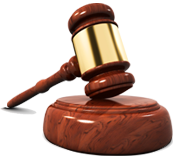 NEW YORK — On December 30, a federal district court in New York issued a decision that clarifies the Fair Labor Standards Act’s (FLSA) professional exemption, particularly as it pertains to contract attorneys. The decision comes out of a class action suit filed by William Henig, a temporary contract attorney who worked for Quinn Emanuel Urquhart & Sullivan, LLP, alleging that he was improperly denied overtime under FLSA and New York Labor Law.
NEW YORK — On December 30, a federal district court in New York issued a decision that clarifies the Fair Labor Standards Act’s (FLSA) professional exemption, particularly as it pertains to contract attorneys. The decision comes out of a class action suit filed by William Henig, a temporary contract attorney who worked for Quinn Emanuel Urquhart & Sullivan, LLP, alleging that he was improperly denied overtime under FLSA and New York Labor Law.
Contract Attorney Duties
According to the suit, Henig worked on a document review project for Quinn Emanuel. The project entailed reviewing and categorizing documents that had been previously identified using search terms. As a first-level review attorney, Henig was expected to review approximately 40 documents per hour. He was provided with training on the electronic database used in the document review project, billing procedures, and the scope and goals of the project. Henig was required to categorize documents as responsive or nonresponsive, privileged or nonprivileged, key or interesting, and confidential or not confidential.
Quinn Emanuel argued that Henig was not entitled to overtime because FLSA and New York Labor Law exempted licensed attorneys from overtime. Henig argues in response that he was not required to exercise legal judgment in connection with the document review project and therefore was not engaged in the practice of law. Therefore, Henig claims that he does not fall under the exemption.
Court Decides on Whether Plaintiff was Engaged in the Practice of Law
According to the federal district court, Henig’s task of reviewing and categorizing documents involved more than simply following verbal instructions — the fact that he determined whether documents were “key” and whether a document was potentially privileged showed that he exercised the kind of professional judgment necessary to be engaged in the practice of law. In reviewing thousands of documents, the court determined that Henig relied in some way on his legal knowledge and experience in tagging documents as noteworthy of review. Therefore, the court concluded, based on the foregoing facts and that Henig held a license to practice law, that he is a professional employee exempt from the overtime requirements of FLSA and New York Labor Law.
Under FLSA’s so-called “learned professional employee exemption,” an employee who is compensated on a salary basis for at least $455 per week, and whose primary duty is performing work requiring advanced knowledge in a field of learning that is usually acquired by a prolonged course of specialized instruction, is exempt from FLSA’s overtime and minimum wage requirements. Under this exemption, an employee holding a law license if exempt if he or she is actually engaged in such a practice. Additionally, the salary and salary basis requirements for the exemption do not apply to those engaged in legal practice.
FLSA’s exemptions apply only in very specific circumstances, and most employees are covered by its overtime and minimum wage requirements. If you believe that you have been unlawfully deprived of your wage rights due to an exemption that was wrongly applied to you, you should call (855) 754-2795 or complete the Free Unpaid Overtime Case Review form on the top right of this page. Our wage lawyers will evaluate your situation and help you craft the best strategy for obtaining compensation. Call our seasoned attorneys today.
